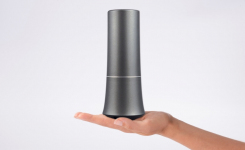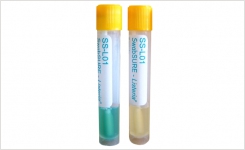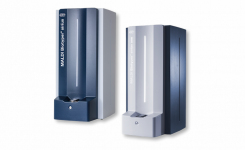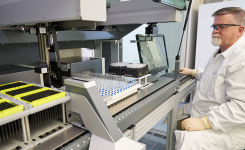First field diagnostic test for Tomato Apex Necrosis Virus
go back to news archives| EnviroLogix, a leader in the development and manufacture of diagnostic test kits for GMOs and plant pathogens, released new diagnostic test kits for Tomato Apex Necrosis Virus (ToANV) and Tomato Spotted Wilt Virus (TSWV). EnviroLogix´ QuickStix Kit for ToANV and QuickStix Kit for TSWV are immunoassay Lateral Flow Devices (LFD) for the detection of these plant pathogens in the field or in the lab. EnviroLogix also offers a high-throughput QualiPlate™ Kit for TSWV, a two-hour ELISA plate test for use in the lab. These test kits will help growers, breeders, seed producers and seed multipliers diagnose and initiate treatment for these severe tomato diseases. ToANV (a torradovirus), confused for some time as a new strain of TSWV, was first identified in the state of Sinaloa, Mexico in 2007, and has since been reported in other areas. This virus has been described as causing 'significant mortality of plants and unmarketable fruit,' resulting in severe economic loss. Before the introduction of the QuickStix Kit for ToANV, there were no tools available to diagnose the disease in the field. Symptomatic samples had to be sent to diagnostic labs where complex tests often took days or weeks to develop results. Because the disease is so virulent and economically threatening, early detection and fast, accurate diagnosis are essential to the application of effective control measures. |
NOTE: This item is from our 'historic' database and
may contain information which is not up to date.
Source : EnviroLogix View Company Information
Posted on January 23, 2008
LATEST MICROBIOLOGY NEWS
MICROBIOLOGY EVENTS
-
Getting Equipped for the Future with the New MAS-100 Sirius® Microbial Air Sampler
1 Jul 2025 -
AI for Food Safety Professionals
8 Jul 2025 -
FEMS Micro
14 Jul 2025 -
Unmasking Endotoxins: A Sample Preparation Strategy to Overcome LER
15 Jul 2025 -
IAFP 2025
27 Jul 2025 -
ADLM 2025
27 Jul 2025 -
Food Safety Culture Workshop
9 Sep 2025 -
CPD accredited course: Level 3 HACCP & Food Safety
15 Sep 2025 -
Culture Eats HACCP for Breakfast (free)
On-demand Webinar -
A3P International Congress 2025
7 Oct 2025

















